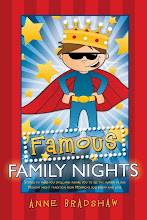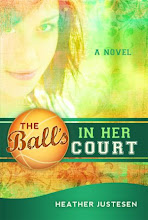by Tristi Pinkston
I recently met an author who was struggling to describe his book. He had a captive audience - the lady stood in front of him, eager to learn more, as he fumbled around with a plot outline of sorts and a vague idea that it was sort of fantasy, but not really, and not really sci-fi, and he wasn't sure what to call it. I interfered (I'm good at interfering) and told him that it sounded to me like his book was speculative fantasy. The customer nodded and the sale was made.
Each genre carries with it a certain reader expectation. If you hear someone say, "I have written a romance," you know you're about to read a story where a guy and girl meet, go through trials of their relationship, and eventually end up together. If you hear, "My book is a romantic drama," you know that someone fell in love, and yet things didn't turn out the way they'd hoped. When you hear, "speculative fantasy," you know that the story will place in the future, generally after the world has come to an end, and with the sub-genre of fantasy, you know you can expect creatures and situations that are different from what we see in our every-day lives.
When you know your genre and you can pass it along to your reader, you've gone a long way toward marketing it. They know what they like to read, and if you know how to describe what you've written, you can help them make a quick decision about their purchase and you can save yourself a lot of pitching power, too. If your reader hates romantic dramas, and you say, "My book is a romantic drama about ..." they'll know right off the bat they aren't interested and you can move along to the next person, who probably just adores romantic dramas and will snatch up your book quicker than an ice cream cone on a hot summer day.
Your job as an author (now that you've written the book, rewritten the book, gotten a publisher, and all the rest of it) is to find those readers who like what you write. Learn what your genre is, learn how to pitch it, and start hunting down those readers.
Wednesday, August 26, 2009
Why Should I Know My Genre?
Subscribe to:
Post Comments (Atom)

















5 comments:
Wonderful post Tristi! That is a good point. I find when writing it is a bad idea for me to decide what the genre is BEFORE I am done, as it stifles creativity because I'm so used to the "form" of that genre, but I never thought of how important it would be to objectively place a piece of writing into a specific genre.
This seems like a no brainer, but it surprises me how many beginning authors don't even know what a genre is. Great post.
Good points. I always recommend peopel find books similar to theirs and then read the reviews for those books...gives a good insight as to how their own books should be described.
Thanks for your insightful post. Can I just call mine YA fiction and be good?
Good advice, Tristi. I ran into that exact situation yesterday. Someone asked, "What do you write?"
My mind went blank. Umm. Ah. Words? :)
Post a Comment